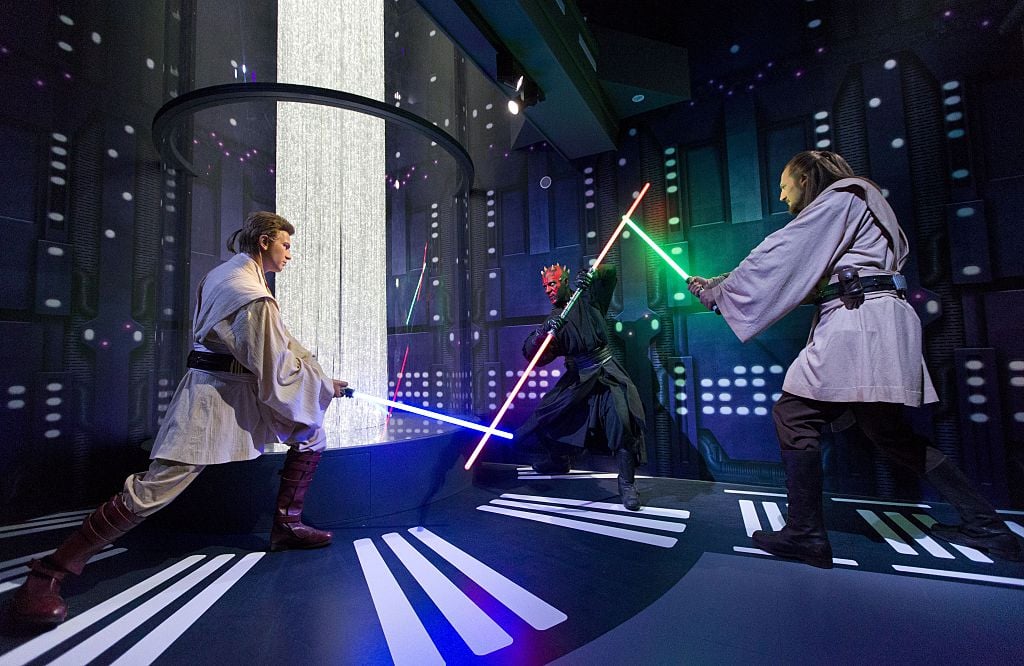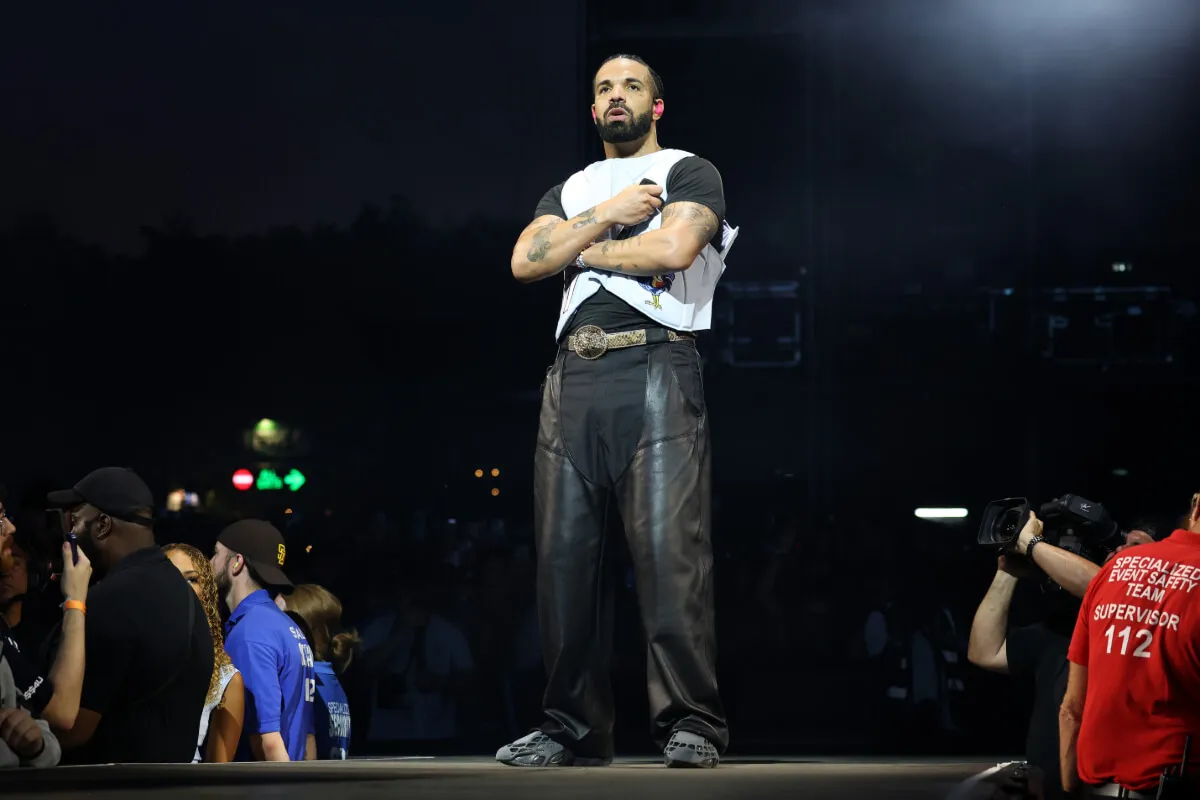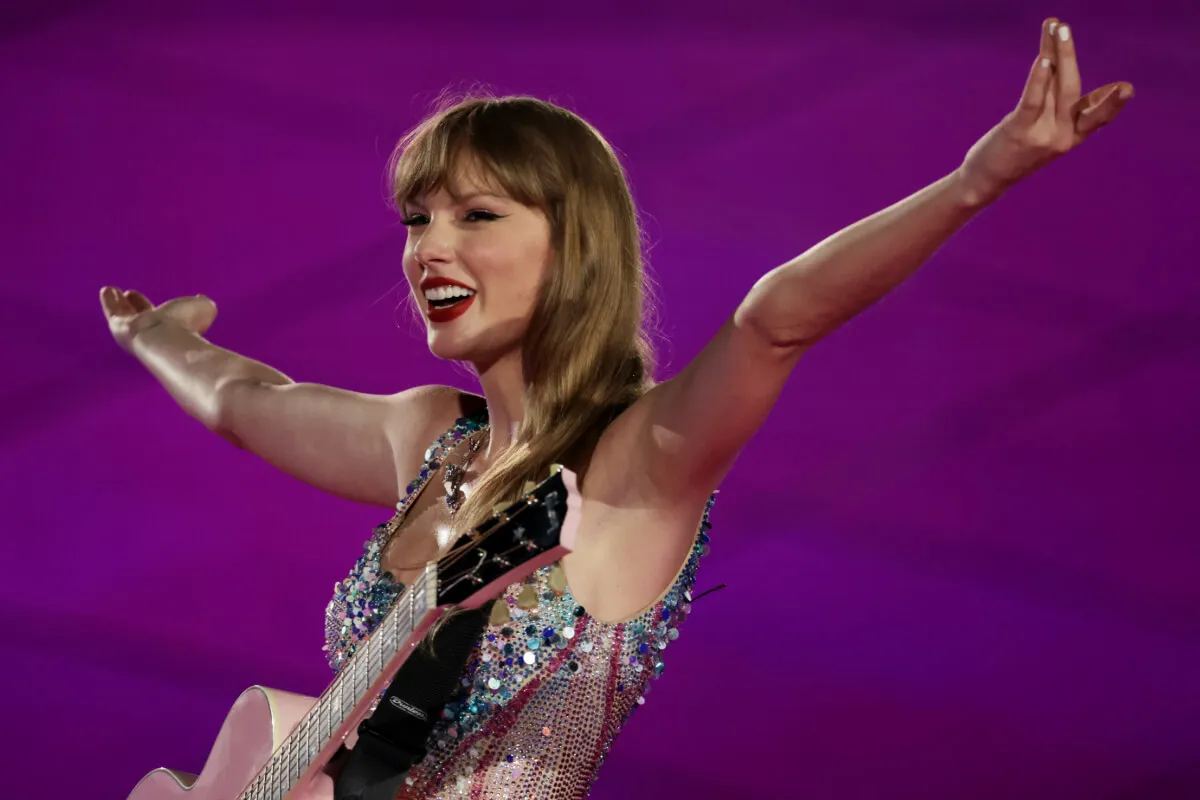Qui-Gon Jinn Was ‘Ahead’ of All The Other Jedi When It Came To Their True Purpose in ‘Star Wars,’ According To Dave Filoni
Even though Qui-Gon Jinn only appears in one Star Wars film and a couple of times in The Clone Wars, he does have a lasting effect on the franchise as a whole. His death changes the way Anakin was going to be trained as a Jedi. And he becomes the first Jedi to ever figure out how to come back from death through the Force. This skill is used in several key points, with Obi-Wan Kenobi coming back to Luke, Yoda coming back as well, and Luke coming to Rey in The Rise of Skywalker. It’s all traced back to Qui-Gon. But even in his life, he was an individual among the Jedi.

Qui-Gon Jinn was much different than the rest of the Jedi
During Disney Gallery: The Mandalorian’s second episode, Dave Filoni shared a really great speech about what The Phantom Menace means for the entire franchise. He described how monumental of a moment the “Duel of the Fates” was for Anakin, and therefore all of their futures. Filoni, the supervising director and executive producer of The Clone Wars, said that it was Anakin’s fate that was “at stake” in that scene.
Filoni explained why Anakin’s training would have been so different if Qui-Gon had survived. He knew he was the parental figure Anakin needed since the child was already too old and couldn’t unlearn attachment and fear. Qui-Gon also had a better, clearer view of the Jedi’s purpose at this point. Filoni said that when he lost it that solidified Anakin’s fate of becoming Darth Vader.
See, even in Episode I, the Jedi had become too political. Once the war starts, they pick a side — with the Republic — and center themselves as generals and commanders in the war. They’re in charge of battalions of Clone troopers and fight viciously, even though their core mission is supposed to be peacekeeping. Qui-Gon already saw this years before.
“The rest of the Jedi are so detached and they become so political, that they’ve lost their way,” Filoni said. “And Yoda starts to see that in the second film. But Qui-Gon is ahead of them all. That’s why he’s not part of the Council.”
Qui-Gon didn’t firmly stick to the Jedi Code
The reason Qui-Gon is so different is because of this clear view he has of the Jedi. Instead of dwelling on the future, he believed a Jedi should focus only on the Force. They should let the Force guide them through the present, and not try to seek out the future. Qui-Gon told Obi-Wan at the beginning of The Phantom Menace that uncertainty of the future can only hinder them, as the YouTube channel Star Wars Theory pointed out.
Count Dooku, who was Qui-Gon’s master, also taught him to use fear as a good thing, to confront it when fearing that he won’t succeed. This is, of course, a big no for Jedi. However, it seemed like they talked through Qui-Gon’s fear in the comic Master and Apprentice a bit more, which helped ease it. This is vastly different than the way Yoda talked to Anakin about his fear of losing someone close to him. Yoda basically said to stop, and let it go. One can kind of see that Anakin might have benefited from a more therapeutic approach to his fear or attachments instead of just being slapped on the wrist and told to “stop it.”
Filoni also recently compared Ahsoka and Qui-Gon in a “Clone Wars Download” video on YouTube and said they were both on the path to selflessness. This is also interesting when you take into consideration that Ahsoka came to the exact same conclusion Qui-Gon did about the Jedi. And one of few Jedi to actually act on it.
Ahsoka came to Qui-Gon’s realization about the Jedi as well
Ahsoka was framed for bombing the Jedi Temple in Season 5. Up until that point, she was one of the best Padawans who was very powerful, skillful, and followed the Jedi Code to a T. But the Jedi Council’s decision to ban her from the Order, without sufficient evidence, cleared Ahsoka’s eyes to the Jedi. They did that to her without trying to protect one of their own (aka her), to pander to the military court she was about to go on (so that she would go on trial as a citizen, not a Jedi).
So, of course, she left. And when she meets the Martez sisters in Season 7, her distrust in the Jedi deepens. Both of their parents died in Coruscant during a wild Jedi chase. They were collateral damage in a non-war zone, and all Master Luminara had to say to the sisters is that she had to make a choice, which lead to their parents’ deaths. “But not to worry; the Force will be with you,” she told the sisters. It showed the Jedi’s disregard for civilians in the grand scheme of saving the day.
As Ahsoka tells Obi-Wan in Season 7, the Jedi are more interested in politics than saving people, when they were supposed to peacekeepers, first and foremost. Ahsoka was so brutalized and twisted by war before she left. She only saw the Republic’s side when Padmé introduced her to Separatists for the first time in Season 3. Jedi aren’t’ supposed to be on one side of civil conflict. They’re supposed to protect people on the Light Side, only fighting against the Dark and injustices of the world. This is what Qui-Gon understood and why he was so ahead of the rest of the Jedi, even Yoda.


